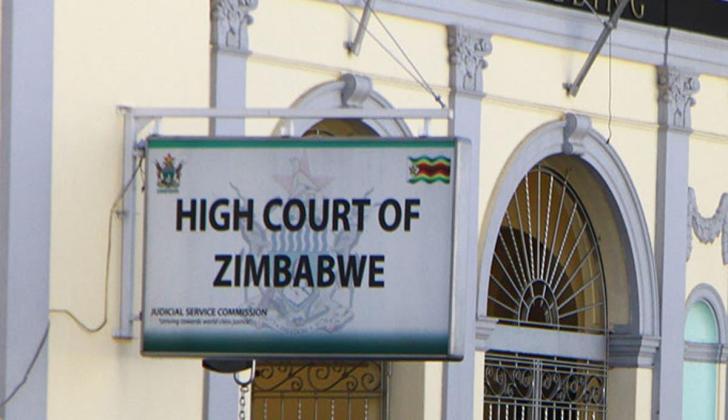News / National
Seed Co sues contract farmer US$270,700
23 Oct 2024 at 06:50hrs |
0 Views

Seed Co Limited has emerged victorious in its legal pursuit against soya bean farmer Christian Falkenberg, successfully recovering US$274,768 after he failed to fulfill the terms of their crop financing and production contract. The case, which was heard in the High Court, underscores the legal implications of contract breaches in agricultural financing.
The dispute traces back to November 2022 when Seed Co and Falkenberg entered into a contract in which the seed company supplied foundation soya bean seeds of the SC Spike variety. Falkenberg was obligated to plant and manage 100 hectares of the seed and deliver 250 metric tonnes of certified seed to Seed Co upon maturity. However, Falkenberg diverted 132 metric tonnes of the certified seed through a practice known as "side marketing," delivering only 118 metric tonnes to Seed Co.
In response to Seed Co's claim for damages, Falkenberg raised a special plea for arbitration, arguing that the matter should be referred to arbitration due to an existing dispute. Seed Co contended that there was no dispute since Falkenberg had clearly breached the contract by failing to deliver the agreed-upon amount of seed.
Seed Co argued that the contract contained two dispute resolution clauses: one allowing for legal proceedings in the High Court in the event of a breach, and another that outlined the arbitration process. They asserted that these clauses clarified the procedure to be followed in the event of a contract breach, thereby negating the need for arbitration.
High Court Judge Justice Joseph Chilimbe ruled in favor of Seed Co, stating that the existence of both dispute resolution clauses indicated that Falkenberg was in breach of the contract. "Seed Co appropriated to itself the right and option to institute proceedings in a court of law in the event of a side-marketing breach," Justice Chilimbe stated.
The judge emphasized that while the arbitration agreement was valid, it should not overshadow the explicit contractual provisions allowing for legal proceedings. "I am not convinced that the presence of clause 6 in the agreement contaminates the arbitration clause so drastically as to render it supine," he said.
Justice Chilimbe concluded that since Falkenberg's actions fell within the scope of the arbitration clause, it was the responsibility of the party contesting the reference to arbitration to justify why court proceedings should not be stayed. Ultimately, he affirmed the validity of the arbitration agreement outlined in clause 11 of the contract, granting it precedence in resolving the matter.
This ruling reinforces the importance of adhering to contractual obligations within agricultural financing and serves as a cautionary tale for farmers engaging in side marketing practices. Seed Co's successful recovery of funds highlights the potential consequences of breaching contractual agreements in the agricultural sector.
The dispute traces back to November 2022 when Seed Co and Falkenberg entered into a contract in which the seed company supplied foundation soya bean seeds of the SC Spike variety. Falkenberg was obligated to plant and manage 100 hectares of the seed and deliver 250 metric tonnes of certified seed to Seed Co upon maturity. However, Falkenberg diverted 132 metric tonnes of the certified seed through a practice known as "side marketing," delivering only 118 metric tonnes to Seed Co.
In response to Seed Co's claim for damages, Falkenberg raised a special plea for arbitration, arguing that the matter should be referred to arbitration due to an existing dispute. Seed Co contended that there was no dispute since Falkenberg had clearly breached the contract by failing to deliver the agreed-upon amount of seed.
Seed Co argued that the contract contained two dispute resolution clauses: one allowing for legal proceedings in the High Court in the event of a breach, and another that outlined the arbitration process. They asserted that these clauses clarified the procedure to be followed in the event of a contract breach, thereby negating the need for arbitration.
The judge emphasized that while the arbitration agreement was valid, it should not overshadow the explicit contractual provisions allowing for legal proceedings. "I am not convinced that the presence of clause 6 in the agreement contaminates the arbitration clause so drastically as to render it supine," he said.
Justice Chilimbe concluded that since Falkenberg's actions fell within the scope of the arbitration clause, it was the responsibility of the party contesting the reference to arbitration to justify why court proceedings should not be stayed. Ultimately, he affirmed the validity of the arbitration agreement outlined in clause 11 of the contract, granting it precedence in resolving the matter.
This ruling reinforces the importance of adhering to contractual obligations within agricultural financing and serves as a cautionary tale for farmers engaging in side marketing practices. Seed Co's successful recovery of funds highlights the potential consequences of breaching contractual agreements in the agricultural sector.
Source - newsday
Join the discussion
Loading comments…






























